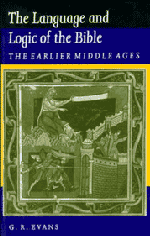Summary
For a thousand years in the West, from the fall of the Roman Empire to the Reformation, almost every man of culture and scholarship was a Christian, and most were clerics. Under the Church's guidance, the Bible was regarded as incomparably the most important book. In principle, everything else was studied in connection with it, in the light of its teaching, or in the hope of throwing light on what was difficult to understand in the text of Scripture. No task could be more urgent. Upon it depended the completion of the redemption of mankind. Sin lingered in the world, and although God had sent his Son to save fallen men and original sin no longer presented an insuperable barrier, each of the future citizens of heaven had need of divine instruction if he was to grow more perfect in this life. In the Bible God had provided detailed teaching and help for the faithful.
Even when, in the later Middle Ages, natural science or logic or the higher studies of law or medicine attracted fine minds and strong interest in their own right, theological questions and problems of exegesis presented themselves. Henry of Langenstein found it helpful to arrange a series of studies on scientific problems (in physics, optics, zoology, and so on) in an order dictated by the six days of creation as they are described in Genesis.
- Type
- Chapter
- Information
- The Language and Logic of the BibleThe Earlier Middle Ages, pp. vii - viiiPublisher: Cambridge University PressPrint publication year: 1984



